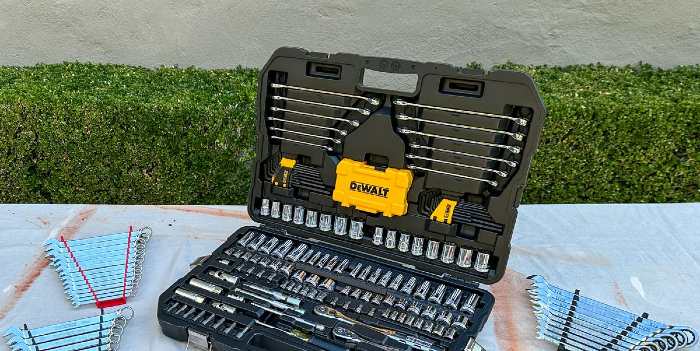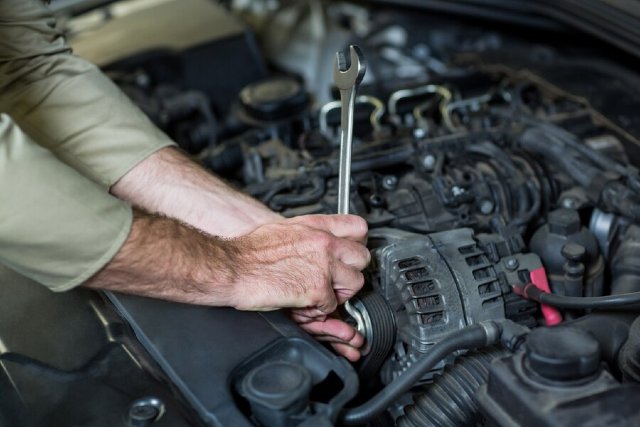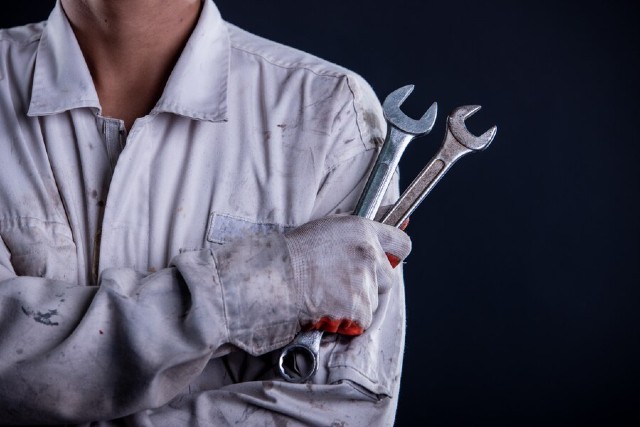A wrench, a humble yet indispensable tool, has played a pivotal role in various mechanical endeavors, from simple household repairs to complex industrial applications. This article delves into the different types of wrenches and their diverse uses, showcasing the versatility that these tools bring to the world of maintenance and construction.
Types of Wrenches: A Comprehensive Overview
Choosing the correct wrench for a work entails more than simply matching sizes. Wrenches are essential tools in mechanical work, construction, and various DIY (do-it-yourself) projects.
Wrench Set: A wrench set is a collection of tools designed for tightening or loosening nuts, bolts, and other fasteners. The set typically includes wrenches of different sizes and types to accommodate various fastener dimensions and shapes. Here are some common types of wrenches found in a typical wrench set:
1. Open-End Wrenches:
Featuring U-shaped jaws, open-end wrenches are ideal for gripping nuts and bolts in tight spaces. These types of wrenches are the go-to choice for gripping nuts and bolts in confined spaces, showcasing simplicity and effectiveness.
2. Box-End Wrenches:
Characterized by a closed-loop design, box-end wrenches provide a secure grip on nuts and bolts. They are less likely to slip, making them effective for high-torque applications.
3. Combination Wrenches:
Combining the features of open-end and box-end wrenches, the combination wrenches have an open jaw on one end and a closed, box-shaped jaw on the other. This versatility allows users to tackle a broader range of fasteners.
4. Adjustable Wrenches:
Also known as a crescent wrench, this type features a movable jaw that can be adjusted to fit different sizes of fasteners. These types of wrenches are versatile but may not provide as secure a grip as fixed-size alternatives.
5. Socket Wrenches:
Socket wrenches use interchangeable sockets to fit various fastener sizes. These wrenches are commonly used in automotive and machinery maintenance.
6. Torque Wrenches:
Critical in applications where specific torque levels are crucial, torque wrenches enable precise tightening of nuts and bolts. Over-tightening, a common issue, is mitigated with these calibrated tools.
7. Allen Wrenches (Hex Keys):
For hexagonal socket screws, Allen wrenches are essential. They come in various sizes and are commonly used in assembling furniture and machinery.

8. Pipe Wrenches:
Designed for gripping and turning pipes, these wrenches have serrated jaws that provide a strong grip on rounded surfaces. They are commonly used in plumbing and pipefitting tasks.
9. Strap Wrenches:
Ideal for gripping and turning smooth cylindrical objects, strap wrenches utilize a flexible strap instead of a solid jaw. They are often used in situations where marring or damaging the surface is a concern.
10. Crowfoot Wrenches:
These wrenches have an open-end design resembling a crow’s foot. They are commonly used with torque wrenches and are beneficial for accessing fasteners in tight spaces.
11. Flare Nut Wrenches:
Featuring a narrow head, flare nut wrenches are designed to grip the flats of tubing nuts without rounding them off. They are commonly used in automotive and hydraulic systems.
12. Spud Wrenches:
Primarily used in ironwork and construction, spud wrenches have a pointed end that can be used to align holes in metal structures. The opposite end often features a wrench for tightening nuts.
13. Ratchet Wrenches:
Equipped with a ratcheting mechanism, these wrenches allow for continuous turning without the need to lift and reposition the tool. This makes them particularly efficient in tight spaces.
14. Flare Nut Crowfoot Wrenches:
Combining the features of flare nut and crowfoot wrenches, these tools are useful for accessing fasteners on tubing and pipes where standard wrenches may not fit.
15. Impact Wrenches:
Unlike traditional manual wrenches, impact wrenches are powered tools that provide rapid, high-torque rotation. These types of wrenches are mostly used in automotive repair and construction.
The Wide Array of Uses for Wrenches:
Many businesses and professional specialists utilize different types of wrenches for different works. Before using any sort of wrench on a work, it is important to understand their respective uses.
1. Automotive Maintenance:
Wrenches are a staple in automotive repair and maintenance, from changing oil filters to replacing spark plugs. Socket wrenches, in particular, find extensive use in the automotive world.

2. Construction and Carpentry:
In construction, wrenches are employed for assembling structures, tightening bolts, and securing various components. The versatility of combination wrenches makes them valuable in carpentry as well.
3. Plumbing Repairs:
Wrenches play a vital role in plumbing repairs, where pipes and fixtures need proper tightening. Adjustable wrenches and pipe wrenches are commonly used for these tasks.
4. Home Repairs:
For everyday household repairs, a basic set of wrenches is indispensable. From fixing leaky faucets to assembling furniture, the diverse types of wrenches prove their worth in a variety of home improvement tasks.
5. Industrial Applications:
In industrial settings, where heavy machinery and equipment are prevalent, torque wrenches ensure that bolts are tightened to precise specifications, preventing equipment failure.
Wrench Maintenance Tips:
To ensure the longevity and effectiveness of your wrenches, consider the following maintenance tips:
- Keep wrenches clean and free of debris
- Store them in a dry environment to prevent rust
- Check adjustable wrenches for any signs of wear or slippage
- Lubricate moving parts regularly
Conclusion:
In conclusion, the world of wrenches is diverse and essential for countless applications. Whether you’re a DIY enthusiast or a professional tradesperson, having the right set of wrenches is crucial for tackling a wide range of tasks with precision and efficiency.

